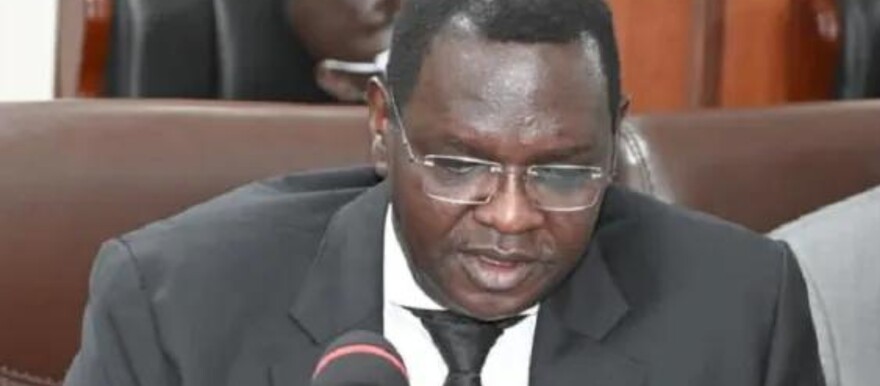The Governor of the Bank of South Sudan (BOSS) on Wednesday admitted that the auctioning of the dollar has not resulted in stabilization of the exchange rate.
Johnny Ohisa Damian was responding to questions raised by lawmakers in the Transitional National Legislative Assembly (TNLA) on the impact of auctioning dollars to commercial banks, change in currency, and the rejection of small currency denominations by traders.
During a regular sitting of the TNLA chaired by Speaker Jemma Nunu Kumba, Ahmed Mohamed Musa, an SPLM MP from Western Bahr el Ghazal State, asked the BOSS governor why the impact of the dollar auctions is not felt.
“The auctioning mechanism has been introduced for quite a long time to fight the dollar black market,” he said.” Don’t you think that this mechanism has failed? Is there no other way we can use to fight the black market?”
In response, Governor Ohisa said the purpose of dollar auctions was a requirement by the International Monetary Fund (IMF) and was meant to stabilize the exchange rate.
“The purpose of the auction when we got funding from the IMF was to stabilize the exchange rate. It was not to reduce the dollar rate. It is true it has not worked and we have to look for other ways how we can do it. However, we need reserves to be able to other monetary policies that would impact the economy,” he explained. “What we are using is a small amount that is not even enough to do anything. The requirement from IMF was that we have to do the auctions although we thought it was not a good idea because we do not see anything good in it but we had to accept that as say yeah, we have to auction to commercial banks.”
“The whole intention was to stabilize the exchange rate,” Ohisa added.
For his part, John Agany Deng, an SPLM lawmaker representing Aweil East County in Northern Bahr el Ghazal State, asked Ohisa if the denominations of the local currency could be changed to force those hoarding money to take it to banks.
“The South Sudanese Pound (SSP) was devalued a long time ago and it is still losing value. Can we change the denomination of our currency so that the money which is lying with us in the houses goes to the possession of the central bank so that the government can regulate it when it is too much?” he asked. “I know some of our friends who have wrong hands have already got hold of that note and there is nowhere for the government to get it back. Some neighboring countries did it and succeeded, Sudan did it two times, and the culprits who had a lot of pounds had to surrender them to the government.”
In reply to Agany, Governor Ohisa said changing the currency is costly and will take at least two years.
“This (currency change) is a policy issue although it is a way we can look into how to manage. Countries do change currencies and take away other zeroes,” he elucidated. “This is possible but also let us look at our finances. Do we have the money to do that? Changing a currency is not an easy thing. It requires a lot of finance and then for you to change a currency, you need at least two years.”
Meanwhile, Zachariah Matur, an SPLM legislator representing Rumbek Center County in Lakes State, enquired from the central bank boss why small currency denominations are being rejected in the market.
“One pound, five and even ten pound notes have lost value so what is happening Mr. Governor?,” Matur queried.
In response, Governor Ohisa admitted that small denominations of the SSP were not popular but said the central bank cannot rectify the problem alone and that it requires a holistic approach.
“We do have small denominations, we have one, five, and twenty pounds. However, if you ask why are they not being used? That is a different question and it is not only the central bank that can answer that because it involves a lot of things,” Ohisa said. “I want to say we have those small denominations and it is true they are not being accepted in the market due to a host of questions that we need to fix as a country.”
“And part of it could also be when we do change (the currency), we need to sit down and you as members of parliament will be involved if we are to change the currency,” the governor added.




